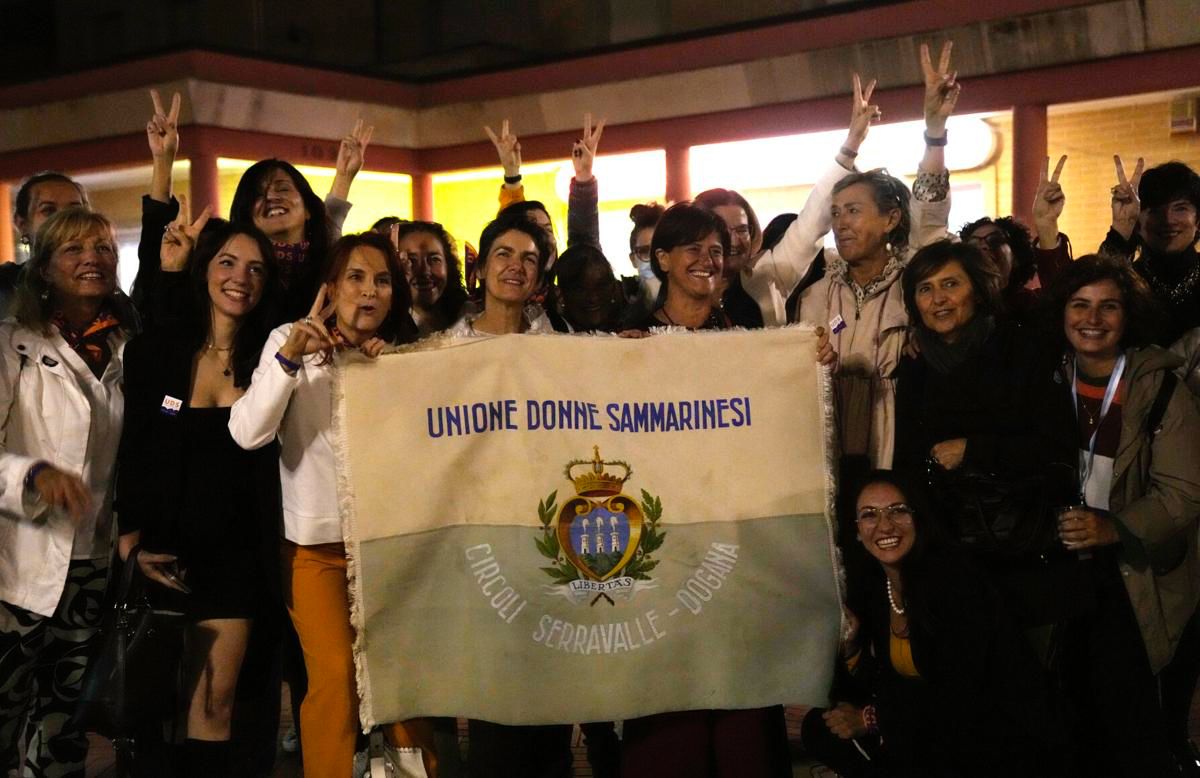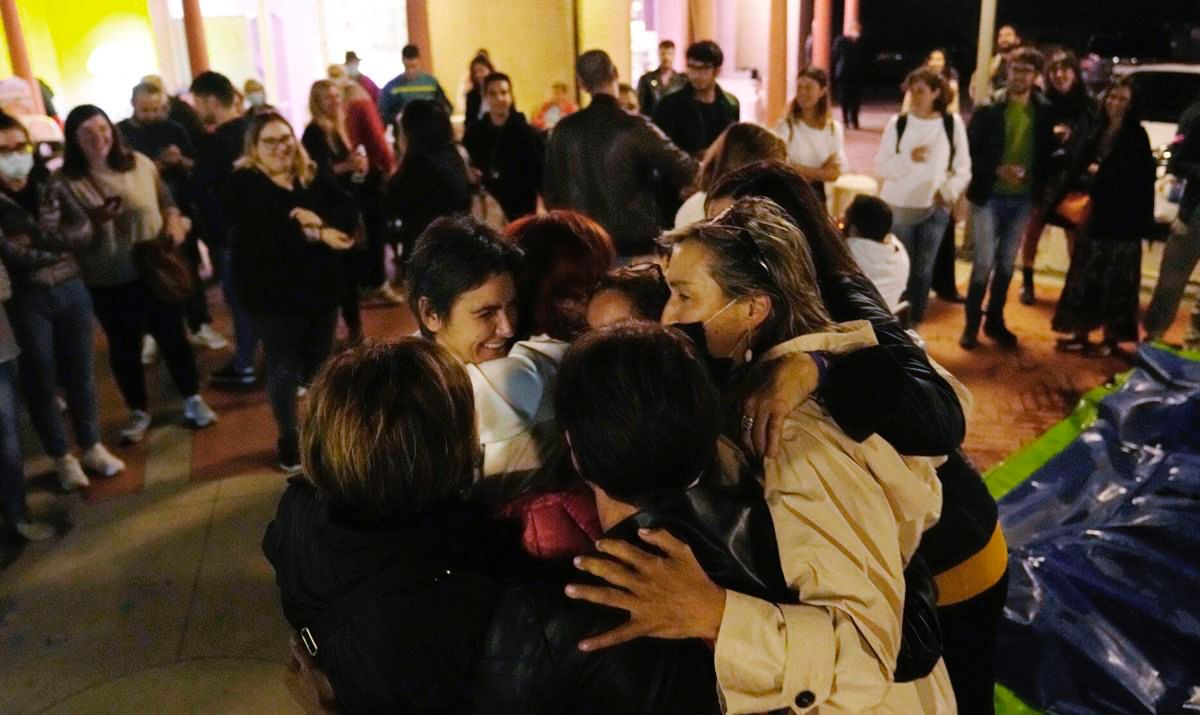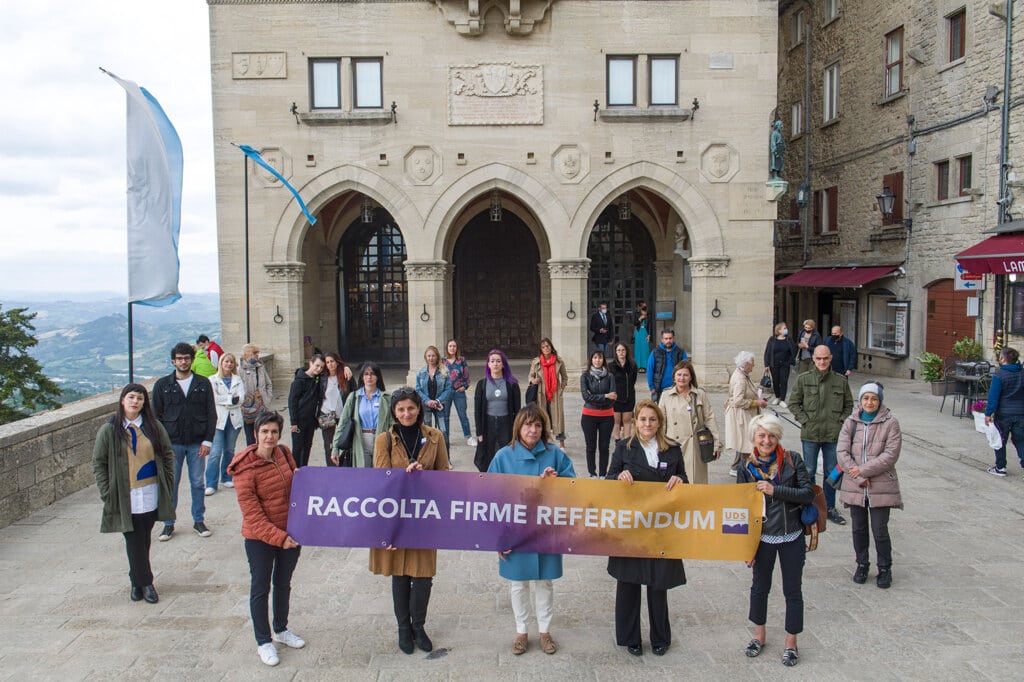San Marino recently legalised abortion care, one year after the landmark referendum. In 2021, 77% of citizens voted overwhelmingly to overturn the 150-year-old law to make abortion legal in the first 12 weeks of pregnancy. Abortion care is also available after the 12 weeks mark if serious foetal anomalies put a woman’s life or health -- physically or psychologically -- at risk. The cost of the procedure will be covered by San Marino’s public health system. Previously, women living in San Marino, were forced to travel to Italy or somewhere else to access the care they needed.
We sat down with Karen Pruccoli, activist and President of the Union of San Marino Women to discuss the changes in the microstate. Karen is an entrepreneur and advocate for civil rights and women’s rights.
How does it feel to have legal abortion in San Marino after 150 years of criminalisation?
It feels great – incredible that we have this law. We are celebrating this long journey to get this law, but also we are also feeling sad we have this law only after so many years of trying to convince our politicians that San Marino’s citizens deserve to have this kind of law. Italy had its abortion law from 1978, so we were very behind. I am satisfied and happy, but unfortunately it arrived after too many years.
What was the combination of factors that led to a win on abortion rights in San Marino despite having such a strict past on the issue?
The main factor why we have this law is Unione Donne Sammarinesi – Union of San Marino Women - which was re-vitalised in 2019, but originally dates from the early 70s and started as a movement for women’s rights. The Union was revived in 2019 and geared its efforts towards trying to convince politicians that a new law on abortion was necessary. Once we realised it was difficult to gain political support, we courageously decided to ask for a referendum. It would have been nearly impossible to get legal abortion in place with the current makeup of the parliament, having a conservative majority, against reproductive freedom. If we were waiting for the parliament to be more progressive and pro-women’s rights, it would have taken another 20 years.
So I think the main reason why we have this law is because of the Union which fights for women rights, civil rights, and human rights in the Republic of San Marino.
What are your thoughts on the new abortion law in San Marino?
We are very happy with the quality of this law, but it was a difficult journey. We met with conservative parties and groups against abortion to discuss how the new law would look like. They initially wanted to propose a law that was much more conservative and stricter.
We were very worried at this stage.
Those involved in the drafting of the San Marino law on abortion even considered implementing conditions similar to those in Hungary - where women are now forced to listen to the embryonic cardiac activity before being able to access care.
It was indeed difficult to push for a modern law, a progressive law that would respect women’s freedom of choice and place it at the centre of the legislation. However, Unione Donne Sammarinesi did not give up and advocated daily on social media, in the press, and by reaching out to communities and the country at large.
The resulting law is in line with the decision of the referendum – where 77% voted YES to ‘women being able to make reproductive choices in their lives’.
To a certain extent the current San Marino law is better than the Italian one. In San Marino, we have family planning centres where women, men and young people can receive unbiased sexual and reproductive care. We also tried to mitigate the risk of medical professionals denying care based on personal beliefs, a huge problem in Italy. In San Marino, in the event doctors are not willing to provide abortion care, the state is obliged to find doctors who will, even if they need to bring them from aboard.
What are the next steps for your advocacy work?
Next, we will be working on combatting violence against women and domestic violence. An expert group on the topic from the Council of Europe visited San Marino and produced a report on how the Istanbul Convention (on preventing and combating violence against women and domestic violence) was implemented in the country. We had a lot of issues and are currently working on amending these.
What is your opinion on deciding rights through popular vote?
We had two referendums on human rights: one asking to include the protection of sexual orientation in our human rights charter and one on abortion.
This first referendum was in 2019 and 72% were in favour of non-discrimination based on sexual orientation. And we know the result on the referendum on abortion. But, I think it is dangerous to have a referendum on human rights especially in Italy as it is a Catholic state, with strong conservative parties.
We had no statistics that could could help us understand if people in San Marino were ready to legalize abortion. At that point we were asking for legal abortion for the past 20 years and we saw no other solution than to put it in the hands of the people. We followed closely what happened in countries like Gibraltar and Ireland and took inspiration from their successes.
So, we decided to take the risk and go for the referendum. But, as far as I am concerned, a referendum on human rights or civil rights is risky.
What is your message to those still fighting for their reproductive freedom?
Never give up!
I think it is important to have at least one big and strong organisation of women’s rights activists that include women, men and young people. It’s also important to create a conversation, provide information and keep the attention on the topic. For so many years in San Marino, abortion was not discussed. Same as topics like domestic violence and medical assisted suicide (euthanasia).
Even today, misleading information on abortion exists out there, so we need to be a strong organised group that is able to share accurate information and create a space for conversation.
Illustration: Ipsita Divedi for IPPF EN x Fine Acts
when
region
European Network
Subject
Abortion Care












